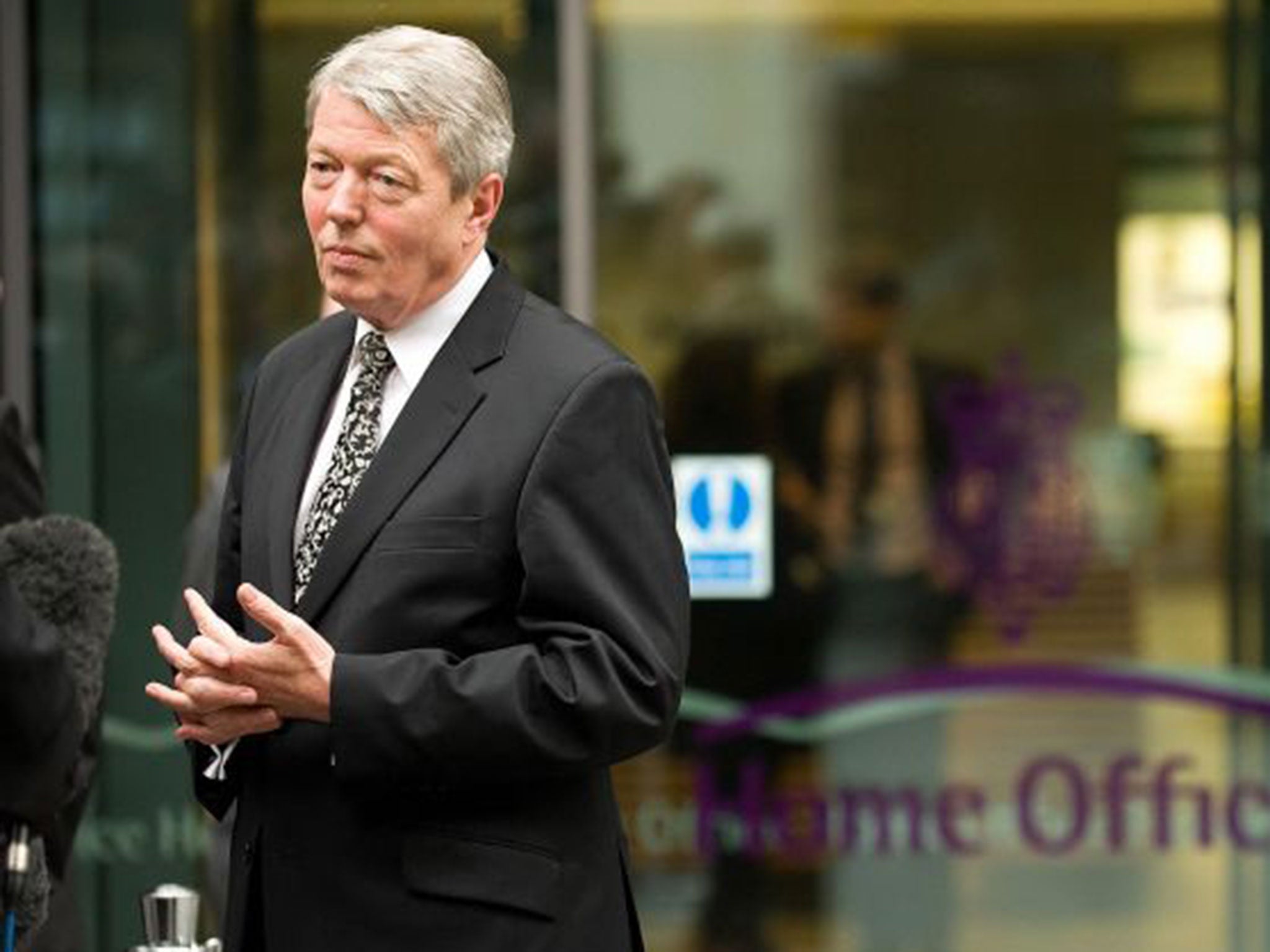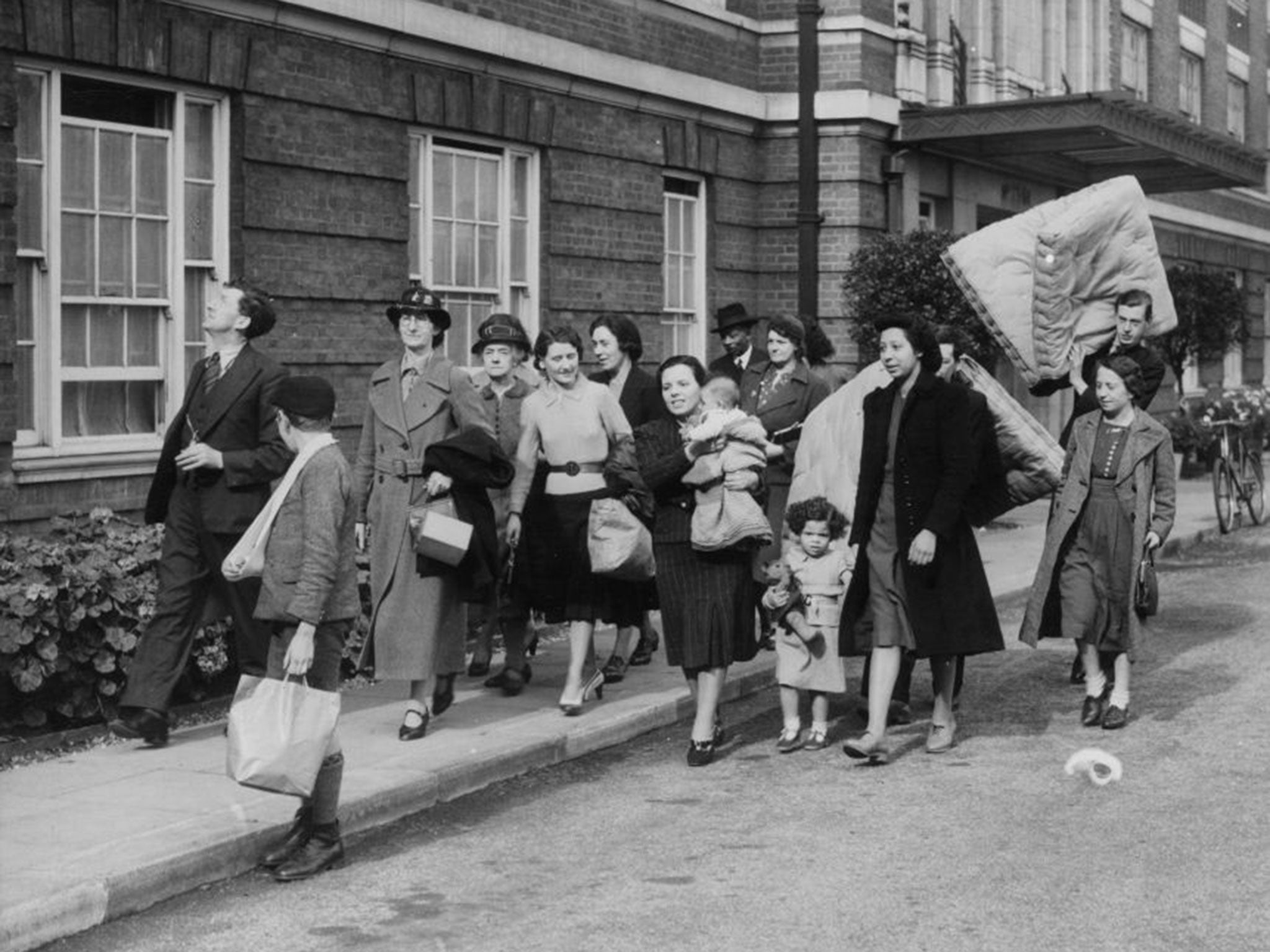Your support helps us to tell the story
From reproductive rights to climate change to Big Tech, The Independent is on the ground when the story is developing. Whether it's investigating the financials of Elon Musk's pro-Trump PAC or producing our latest documentary, 'The A Word', which shines a light on the American women fighting for reproductive rights, we know how important it is to parse out the facts from the messaging.
At such a critical moment in US history, we need reporters on the ground. Your donation allows us to keep sending journalists to speak to both sides of the story.
The Independent is trusted by Americans across the entire political spectrum. And unlike many other quality news outlets, we choose not to lock Americans out of our reporting and analysis with paywalls. We believe quality journalism should be available to everyone, paid for by those who can afford it.
Your support makes all the difference.One of the most interesting sub-arguments to float up to the surface of the Scottish independence debate took in the idea of social justice. There was, naturally, a straightforwardly romantic side to the Yes campaign, built on a Burns-like vision of brooks and braes and bonny white heather, and there was, inevitably, also an economic-materialist side, built on doling out what remains of the oil revenues. But doing battle alongside them was a suggestion that an independent Scotland would make a fine crucible for a new kind of social democracy, differing from the old, discredited, Blairite model in its reluctance to suck up to capital and vested interests in such a shameless and divisive way.
Eight months before a UK general election, the tocsin of social justice seems to be clanging a little louder – but only a little – above the political scene than once it used. It is, for example, a feature of The Guardian columnist Owen Jones’s new book about the Establishment, and a beguiling earlier version of it can occasionally be glimpsed in Please, Mr Postman – the second volume of the former Home Secretary Alan Johnson’s memoirs, published last week. And yet defining it, here in a world where most abstract nouns once associated with politics (“liberal” for example) have gone through a kind of 180-degree turn in meaning, is notoriously difficult. So let us say that I am a Labour front-bencher urging Mr Miliband to advocate its renewal in next year’s manifesto. What am I proposing?
Curiously enough, given the prevailing socio-economic conditions, the only way to begin is by establishing what it is not. Does social justice mean equality of opportunity? Not really, because in a landscape where most forms of advantage come built-in, equality of opportunity is a meaningless phrase: after all, you can (theoretically) sit the boy from Harrow and the girl from Grimepit Colliery Comprehensive side by side in the same examination hall, but in doing so you will have to ignore the fact that several factors beyond their natural intelligence are likely to affect their ability to shine. Does it mean a willingness on the part of the state to intervene in aspects of our national life? No again, because no part of the national fabric is quite as distrusted as Leviathan and even quite sensible proposals to – say – renationalise the railways are laughed out of court should any Labour backbencher dare to suggest them.
Is it something to do with higher taxation, then? No again, because all political parties are – understandably – terrified of suggesting that most of the things the public appears to want (greater spending on the NHS, proper pensions provision) will have to be paid for by the public itself. In the end the advocate of social justice is usually reduced to arguing that what he or she wants is “fairness” – a praiseworthy aim, naturally, but one unlikely to be accomplished without at least some consideration of one or two of the measures listed above. Which is a way of saying that many of the mechanisms by which the country is currently run are, strictly speaking, unfair, but that – as the Blair administration demonstrated in spades – fairness tends to collapse by the wayside whenever it looks as if its consequence might be a determination to stop oligarchs from pushing ordinary people around.

The historian, looking back at the development of post-1945 Britain, would probably conclude that there was a time at which the idea of social justice meant something sharp and hard and tangible, and that its high point came in the Labour government of 1945-1951 – a reforming administration, certainly, but not an extreme one, very few of whose innovations were overthrown by the Conservative government that succeeded it and whose mixed-economy standpoint eventually resulted in the cross-party fiscal hybrid known as “Butskellism”. But that historian would quite reasonably suspect that there was a tipping point in British history at which social justice became that much harder to obtain, and that the odds were loaded against it not only by the freedom allowed to capital but the licence allowed to labour. The Callaghan administration of 1976-1979, for example, run by an Attlee acolyte and containing dozens of genuine social democrats, was eventually destroyed by some of its own trades union affiliates.
As a teenager in the strike-bound late 1970s, talking to people in late middle age, one often used to hear that at some point in its recent history Britain had “gone wrong”; “Well, they got that right” my father once remarked, catching sight of Blur’s Modern Life is Rubbish by the cassette player. The people doing the complaining were usually arch-Conservatives. These, had they lived, would have been cheered by the successive volumes of David Kynaston’s history of the post-war years, whose latest tranche – A Shake of the Dice: 1959-1962 – was published last week. And yet, whatever the mistakes made by the Churchill, Eden and Macmillan governments a glance through Kynaston confirms not that these administrations were especially inept, but that the socio-economic conditions were such that almost any government of both left or right would have very little room for manoeuvre.
For all the variety of his themes, and the well-nigh kaleidoscopic range of his detail, it is fair to say that Kynaston has a single subject. This is materialism. The Britain he surveys is one in which, with a few painful exceptions, people are earning more money, buying more goods, enjoying higher standards of living and – a fatal impediment to the ideal of communality – becoming more individualistic. No one objects, save a few puritanical lefties, on the plausible grounds that the survivors of a six-year war and the depression of the 1930s deserve their march to the sunlit uplands of the car show-room and hire-purchase shop, and one of the marks of Johnson’s account of his late 1960s young man about town-hood is his embrace of all this. Keen on solidarity, he also appreciates the lure of TV sets and electric guitars. “I didn’t want to abolish money,” he remarks of the economic theories propounded by Tariq Ali as the students marched on Grosvenor Square. “I needed more of the bloody stuff.”
So he did. But all this, inevitably, creates difficulties for anyone bent on social justice. Once people earn more money they tend to want its increase to be exponential. Trades unions want to preserve differentials. The wealthy argue that they can only supply what the less wealthy want under the banner of laissez-faire. Galloping technology enhances these divisions by limiting the power that a single jurisdiction can exert on the people who trade within its boundaries. The natural consequence of all these developments is a political impasse. Any politician who was seriously interested in social justice would start by proposing not a minimum wage but a maximum wage, and go on to identify the dozens of areas of our lives that cry out for greater intervention by the state. He or she would then recollect just how incompetent the state generally is when charged with effecting these interventions and go back, as Mr Miliband does, and Mr Blair did before him, to talking about fairness.

Join our commenting forum
Join thought-provoking conversations, follow other Independent readers and see their replies
Comments